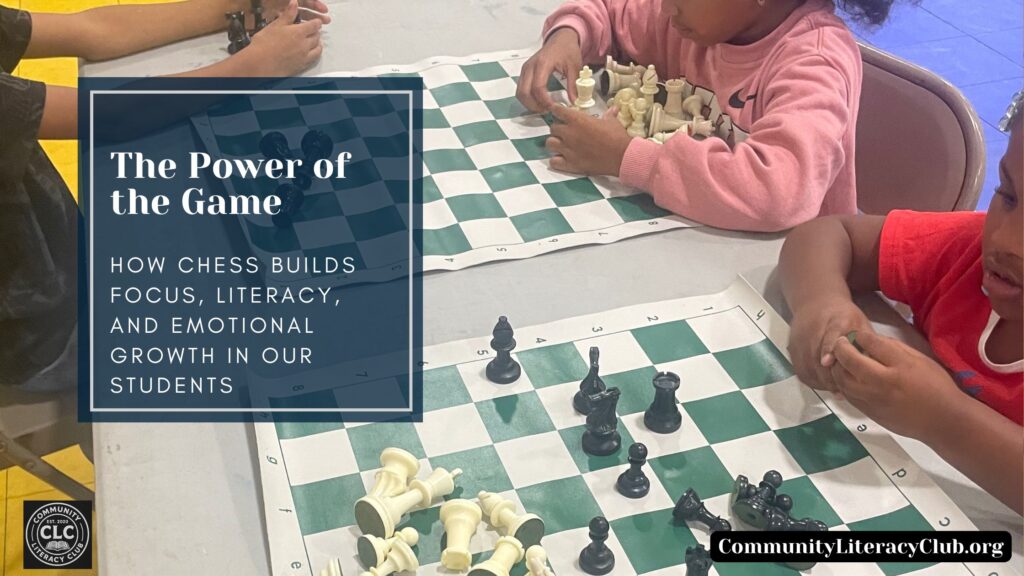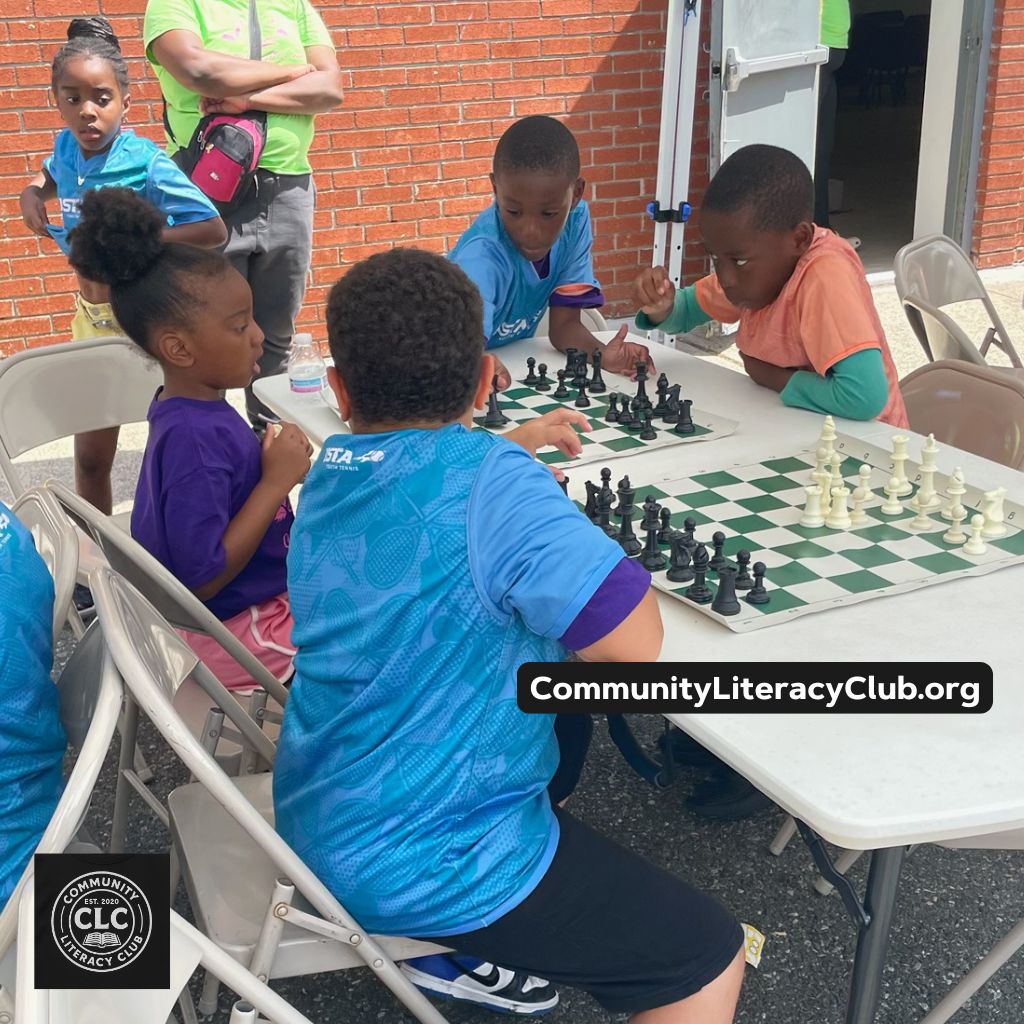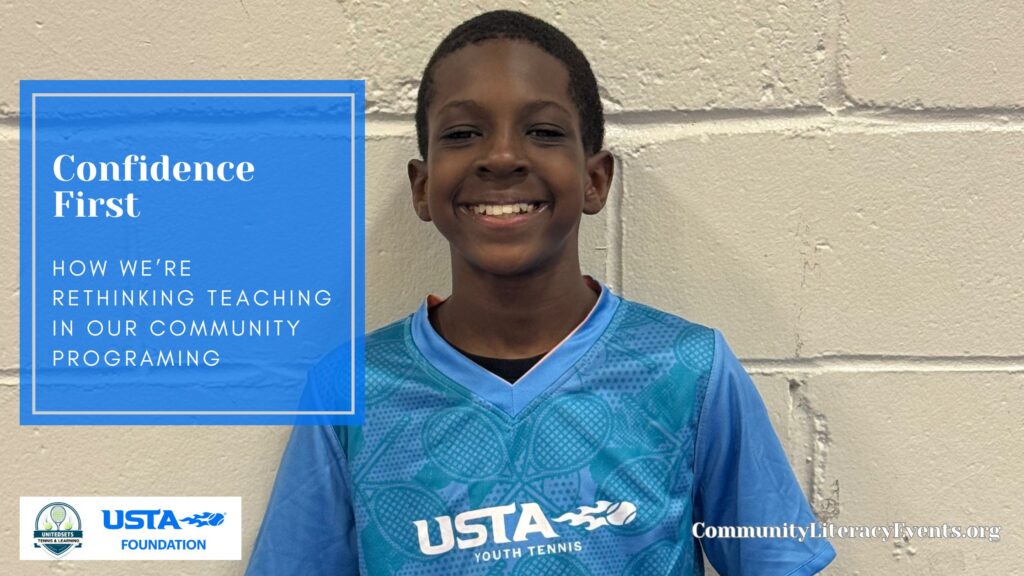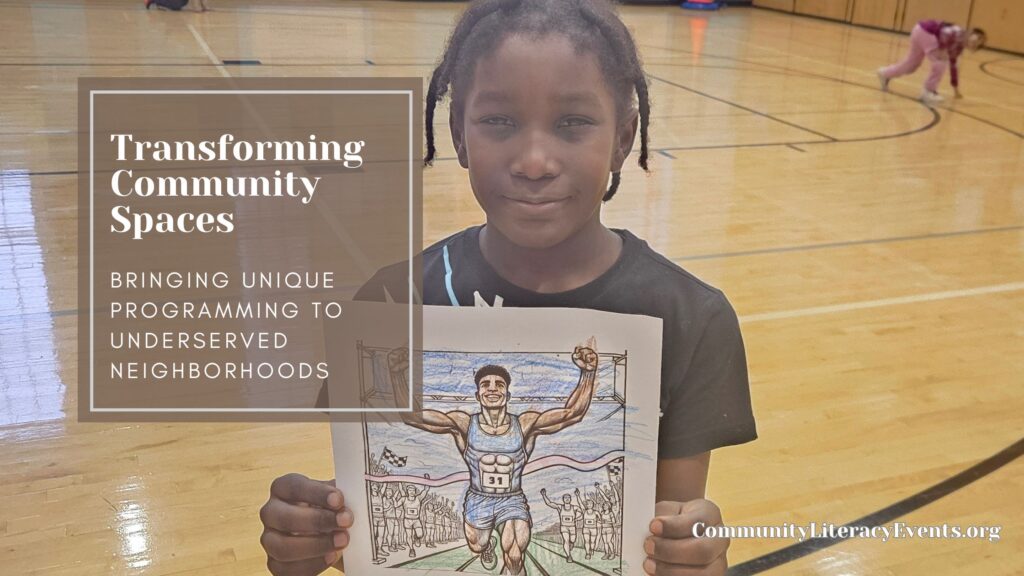How Chess Builds Focus, Literacy, and Emotional Growth in Our Students


At the Community Literacy Events & Enrichment Program, we’ve always believed that learning should engage both the mind and the heart. Literacy is not just about reading words on a page — it’s about understanding, decision-making, and expression. That belief led us to add chess to our curriculum, not as a pastime, but as a tool for literacy education and social-emotional learning (SEL).
Chess teaches students to slow down, think ahead, and reflect — skills that directly translate to stronger reading comprehension, better writing, and improved communication.
Just as readers must anticipate how a story unfolds, chess players must anticipate their opponent’s moves. Both require patience, concentration, and critical thinking.
But perhaps one of the most remarkable things we’ve observed is how chess changes behavior and builds emotional discipline. Some students who have difficulty standing still or focusing during traditional classroom activities are able to settle into deep concentration when playing chess. The structure of the game — clear rules, predictable turns, and visual feedback — gives them a sense of calm and control. For these students, chess becomes more than a game; it’s a bridge to focus and self-regulation.
Of course, not every child takes to the game in the same way. Some students thrive in the quiet strategy of chess, while others need more movement or stimulation. Our instructors adapt by offering alternatives such as team-based chess activities, interactive strategy games, and storytelling exercises that connect the logic of the chessboard to real-life situations. This ensures that every student — regardless of their learning style — is included and challenged.
In addition to improving focus and decision-making, chess provides countless opportunities for emotional growth. Players learn how to handle losing gracefully, celebrate others’ successes, and recover from mistakes — lessons that build character and confidence. It encourages empathy, teaching students to think from another perspective — the very foundation of both emotional intelligence and literacy.
Through chess, we see literacy in action: students reading the board like a page, learning that every move tells a story and every choice has consequences. The quiet moments during each game are filled with learning — patience, persistence, and pride.
By integrating chess into our literacy and SEL framework, we’re helping students develop strong minds and balanced hearts. It’s more than just teaching them how to play — it’s teaching them how to think, reflect, and grow.
In the Community Literacy Club we’re proud to say that every game played is a move toward a brighter, more confident future for our youth.
At the Community Literacy Events & Enrichment Program, we’ve always believed that learning should engage both the mind and the heart. Literacy is not just about reading words on a page — it’s about understanding, decision-making, and expression. That belief led us to add chess to our curriculum, not as a pastime, but as a […]
From Resistance to Resilience: How We’re Shifting the Way We Teach As a Community-First Program, we’ve always known that teaching goes beyond books and test scores. Recently, we’ve uncovered something even deeper—something that touches every subject we teach and every child we serve: confidence. Many of our kids come into our programs with a big […]
At Community Literacy Events & Enrichment Program, we transform local spaces into vibrant hubs of learning and growth. By setting up our programming within walking distance for 80% of participants, we ensure accessibility and foster a sense of ownership within these communities. In many neighborhoods, after-school and summer programs often center around familiar activities and […]

